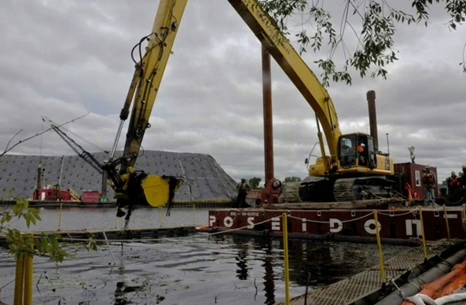Construction has yet to begin, but the cost of the long-awaited Adelaide Street underpass has already skyrocketed well over budget.
A report going to the civic works committee next week shows the four-lane underpass beneath the CP Rail tracks on Adelaide will cost a total of $87.6 million. London city council previously approved $58.3 million for the project and $22 million of that has already been spent on consultations and detailed design work.
According to the report, only three qualified bids for the project were received during the procurement process, with city staff recommending the lowest contract – McLean Taylor Construction Ltd. at $60.2 million.
“This is a unique and complex project that includes items which are challenging to accurately estimate during the design phase, particularly given current industry wide supply chain challenges and rapid rates of inflation for construction materials and labour,” staff write in the report going to politicians.
They recommend the city make up the budget shortfall by delaying two other transportation projects for up to five years. The projects are the repaving of the Wenige Expressway on Highbury Avenue between Hamilton Road and Highway 401 and the Southdale Road and Wickerson Road upgrades that would have added bike lanes and sidewalks. The deferral of these two projects would free up $20.4 million
The remaining $8.4 million needed to cover the ballooning cost of the Adelaide Street underpass could be found through debt financing that is available under the city’s debt management practices, administration noted.
The federal and provincial governments have committed $11.1 million to the project, while CP Rail is chipping in about $9 million. A decision to reopen the tender process in hopes of finding a lower bidder could jeopardize some of those funds, in addition to delaying the project.
“Implementation of the City’s highest priority grade separation at Adelaide Street North and the CP Railway is an important component of London’s program of mobility improvements that will mitigate the impact of rail activity for London residents on an important economic and transit corridor,” the staff report concludes.
City staff previously noted that the drivers, cyclists, and pedestrians are blocked by passing trains at the rail crossing between 11 and 30 times each day for a combined total of 100 minutes. The highly-anticipated underpass would improve traffic flow, provide a reliable route for emergency services and public transit, and reduce cut-through traffic in adjacent neighbourhoods.
Construction is currently scheduled to begin this year. It will take approximately two years to complete with finishing touches on the project expected by 2025.
